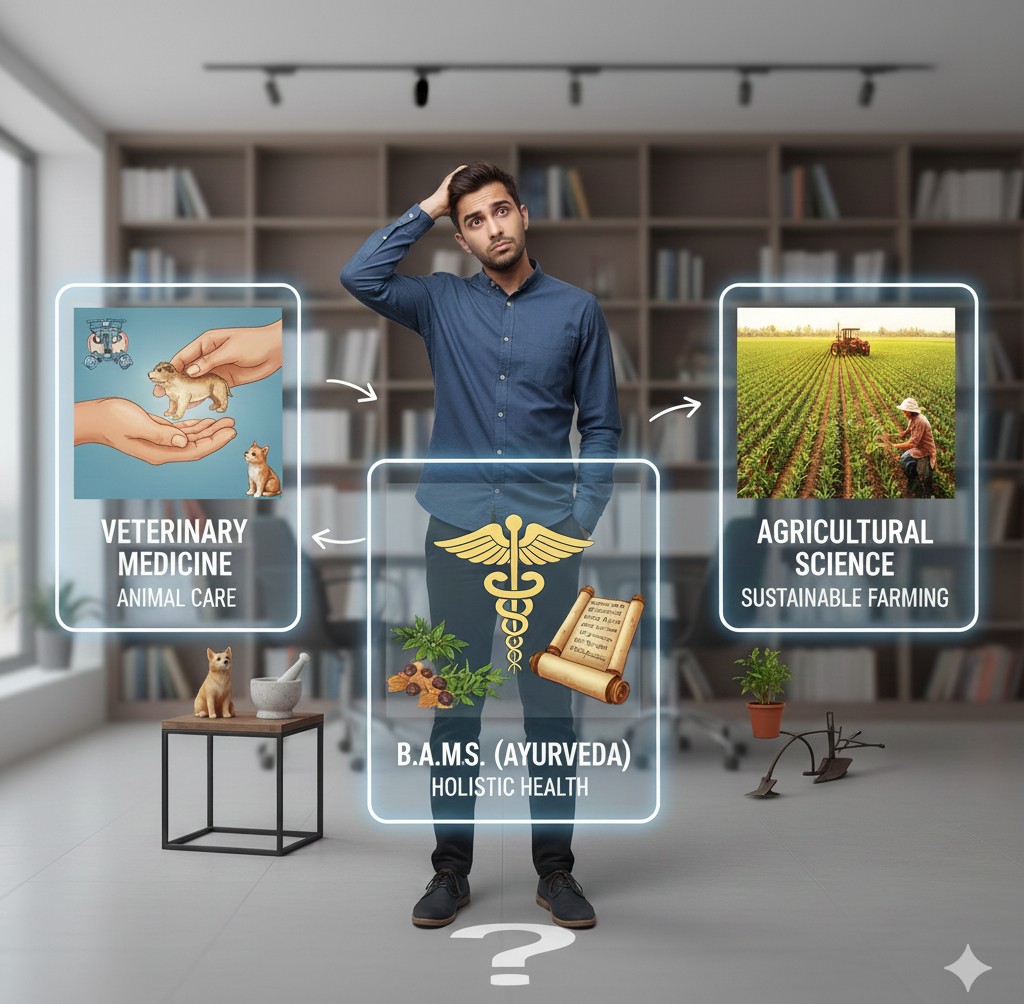The path of becoming a veterinarian is rewarding and has its challenges as well. Students in this field juggle coursework in physiology, anatomy and medicine, along with trying to gain experience in clinical practices. It requires a properly scheduled and smart working routine. Along with this, the pressure of maintaining personal social growth is also crucial.
The life of a veterinary student can be pretty exhausting and draining if not planned well. Imagine waking up trying to remember all the parasites that affect ruminants, then studying for coming classes and attending lectures, keeping up with the daily lecture, devoting time for clinical practices or any other personal research, and getting some proper rejuvenating sleep and personal time. Only writing about it has made me dizzy. Imagine having it all under control. Well, it's not as difficult as it sounds; with proper time management and scheduled, regular practices, it can be simplified.
Time Management
The foremost important thing to do is create a proper schedule. If you're new to this method, try making a schedule for a shorter duration (short-term goals), like a week. If this works out, go for a longer duration (long-term goals). If your trial short-term goal fails, then try making some cuts and adding some mentally stimulating fun activities to keep you going. Don't overburden yourself with a lot of tasks if you are starting the week and are not used to having longer sitting sessions. If you overburden yourself with an exhausting routine, you'll be tired and demotivated, so make it gradual and allow your mind and body to adjust to it.
The next cumbersome task is to distinguish between urgent or important and non-urgent or less important topics. It'll save you plenty of time, and you'll be prosperous. This is the basic concept of smart work. By completing the tough task first, as when you start studying, you use the maximum of your energy; when you give that to the complicated yet important portion, it makes the entire task easygoing.
You can use various tools, such as Excel, or you can make your tables. I'd suggest using Excel, as you can get it printed and it will save you a lot of time. Also, you'll find plenty of applications for improving productivity. The important thing to note here is that it shouldn't take more than an hour to plan. Make sure you complete your planning and scheduling in that one hour.Also, make sure, while making a schedule, you don't take up heavy subjects all at once. If you are studying a difficult or time-consuming subject (according to you), make sure you combine that with a light, easy-going topic. Otherwise, you can also align similar subjects together, like LPT and public health.
Mastering Studies
For effective learning and grasping of the syllabus and course, you should be very attentive in class. Most of the students believe that even if we don't focus on class, we can still get by through self-study. But what they miss out on is that you already spend time taking classes; why not focus on it and try to understand and note down what the teacher has to offer? Even if the teaching isn't up to your mark, at least you'll have some idea about what's going on if you just listen and jot down some pointers. If you completely space out and don't focus in class, you'll feel completely lost and demotivated to even start your self-study.
And if you are already a good listener and focus well in class, the best way to improve your learning is by making effective notes. Note-making is an art; it involves your listening, comprehension, and writing skills. The teachers would mostly let you know the maximum number of important topics and questions if you listened carefully and made notes. If you feel lost about what you want to note or what's important, then try writing down everything that comes out of the teacher's mouth; it is exhausting but would help you a lot. You can make a fresh note from this during your self-study.
Now comes the most important part: here you have to know your studying style and patterns. Some people are comfortable with group studies; some like studying by themselves; and some study by teaching others. Once you figure this out, move forward with that method with consistency and discipline.
Along with your class notes and presentation, keep a book reading and reference habit. The more you go through your books, the more thorough you get. But if you're under a time crunch, book reading would not be suggested; at that time, you should rely on your notes for proper time management. You can also get help from your seniors for your exams by referring to the previous year's questions and important topics, so make sure you have a good relationship with your seniors. Sometimes, when topics are difficult to understand, you can also get help from online sources like YouTube.
Thriving in Clinical Rotations
The veterinary journey becomes thrilling when you start your clinical practice. You can succeed if you put in a lot of effort and are sincere.
The secret to improving your results is punctuality. Make sure to be punctual for your clinical rotations and wear appropriate attire.
You can only learn and progress by asking plenty of questions and never being afraid to ask for help. To gain more insight from the experiences of your team, colleagues, and elders, cultivate a positive relationship with them. Take ownership of your actions and strive to improve them.
You can begin practicing in private clinics or by volunteering at non-governmental organisations as early as your third year of BVSc-AH, even though real clinical procedures begin in the fourth year.
Maintaining a personal life
It could be hard to get involved and invested when you're completely ignoring yourself, which can have an impact on your results. Between work and personal life, a balance has to be maintained. It's vital that you learn to unplug and allow yourself to be alone. You'll be able to analyse the situation you're in, where you're at in your life, and what you can do to improve it. It's also necessary to spend time with yourself, work on your own or chill out.
Getting enough rest, healthy food, and exercise is the key. You can set aside some time for hobbies, and you shouldn't spend all that time on other things.
'Cause sometimes, when we're struggling with our careers and studies, we tend to get caught up in these things for reasons of pride or validation. I think this is a very serious problem that people are not aware of. For example, we're starting to play a multiplayer game, and we're doing well. Meanwhile, we're struggling a lot in our career, so we tend to drop the struggle and start obsessing over the game because that's what makes us feel like we are achieving something that isn't real (until and unless you want a career in e-gaming).
Conclusion
It can feel like playing a complicated symphony when you juggle studies, clinical rotations, and personal life. The good news is that, with a little practice, you can harmonise all these elements and make your experience at the Veterinary College worthwhile. Remember, prioritising your well-being is not a sign of weakness; it's the foundation for success in the future. By incorporating these tips into your daily routine, you're on the road to becoming a well-rounded veterinarian who thrives in every aspect of life. So go ahead and conquer your studies; become a master of rotation; and don't forget to enjoy the ride!







